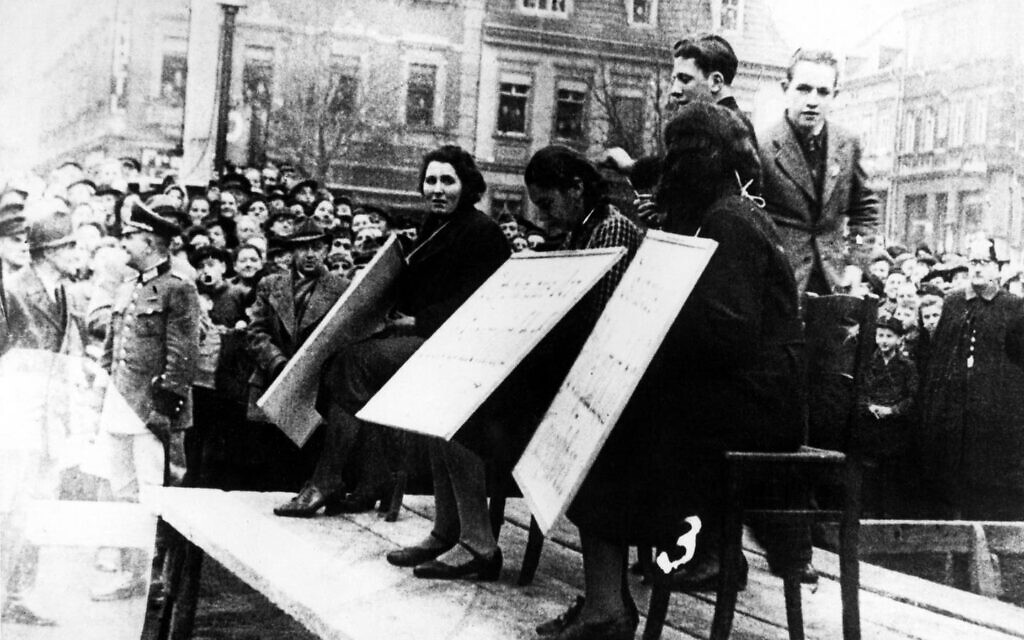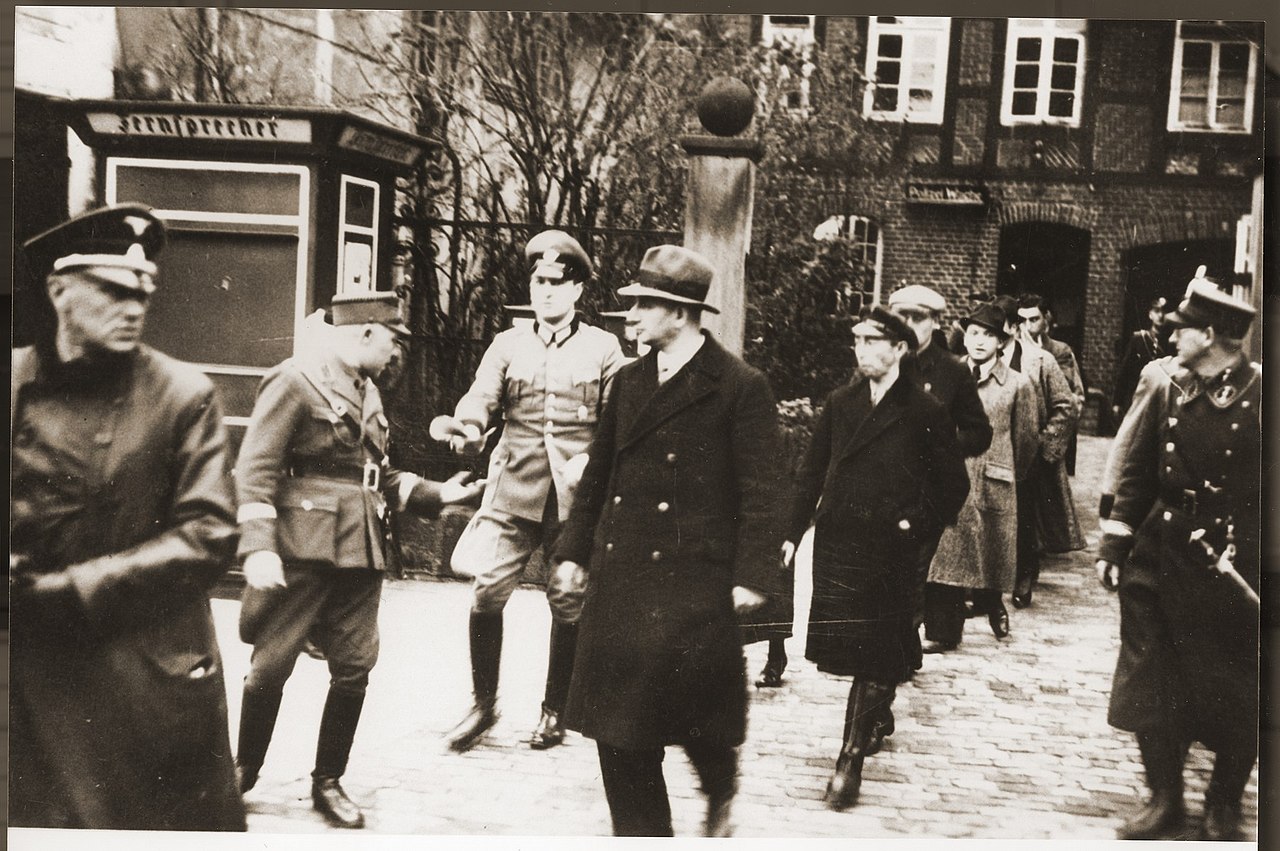General Discussion
Related: Editorials & Other Articles, Issue Forums, Alliance Forums, Region ForumsOnce lost to history, Kristallnacht testimonies describe pogrom's aftermath
Kristallnacht evokes images of shattered storefronts and synagogues set ablaze. By way of contrast, a collection of once-unpublished testimony conveys the personal impact of the Nazi pogrom on Jews who fled Germany in its wake.
Almost lost to history, the Kristallnacht testimonies were gathered by sociologist and Harvard professor Edward Y. Hartshorne after the notorious “Night of Broken Glass” on November 9 and 10, 1938. Throughout 1939, Hartshorne gathered 250 essays from eyewitnesses who fled Germany, Austria, and the Sudetenland.
“This year is coming to an end,” wrote Berlin physician Hertha Nathorff in her journal a few weeks after Kristallnacht. “It has taken away from me everything that made my life happy and fortunate. The last few months have completely changed me.”
(public domain)
Kristallnacht evokes images of shattered storefronts and synagogues set ablaze. By way of contrast, a collection of once-unpublished testimony conveys the personal impact of the Nazi pogrom on Jews who fled Germany in its wake.
Almost lost to history, the Kristallnacht testimonies were gathered by sociologist and Harvard professor Edward Y. Hartshorne after the notorious “Night of Broken Glass” on November 9 and 10, 1938. Throughout 1939, Hartshorne gathered 250 essays from eyewitnesses who fled Germany, Austria, and the Sudetenland.
“This year is coming to an end,” wrote Berlin physician Hertha Nathorff in her journal a few weeks after Kristallnacht. “It has taken away from me everything that made my life happy and fortunate. The last few months have completely changed me.”

After the Kristallnacht pogrom in Linz, Austria, Jewish women are made to wear signs saying, 'I am not part of the national community,' while being humiliated on stage in public (public domain)
Nathorff wrote about having to hide her son in someone else’s apartment so he would not be arrested. Soon after Kristallnacht, she took to wandering the streets to avoid her own arrest.

Jews rounded up in Stadthagen after Kristallnacht (public domain)
more...
Solly Mack
(90,765 posts)Hekate
(90,681 posts)PoindexterOglethorpe
(25,855 posts)My ex-husband is Jewish, his grandparents came to this country from the Austria-Hungarian empire at the beginning of the 20th century. Other family members got out between the two world wars. I have met some of those relatives, and I'm in awe of them, of what they have shared with us.
A complete non sequiter. Some years back we connected with a woman we understood was some kind of a cousin on my husband's side, and when we settled down in the restaurant in NYC, my ex said, "So okay, exactly how are we related?" She said, "We are not related at all. I am simply a friend of your family and they treat me like family." What a delight!
Another non sequiter. All four of my grandparents came from Ireland. When I was a little girl the elderly aunts would look at me and say (please imagine an Irish brogue here) "Ahh, she has the map of Ireland on her face!" Well, I grew up in this country, and even if we only look at Europeans, there's a decent amount of diversity. Let alone all of the other wonderful ethnic groups who make up this fabulous country. Well, the first time I went to Ireland I finally understood. Every single person I saw looked exactly like my brothers and sisters and cousins (parents, brothers, and sisters all married Irish Americans). Wow. Some 25 years later on a family trip to Ireland (Mom, all my brothers and sisters, most of the next generation, plus a cousin and her new husband(Irish-American, are you surprised?) I got it once again. Every single time we'd split up and then be trying to reconnect, I had trouble figuring out who was in my family and who was not.
This applies to any and all of you who are most likely of different ethnicity. Please, if you are not already, be proud of your ethnicity. It is wonderful and should be celebrated.